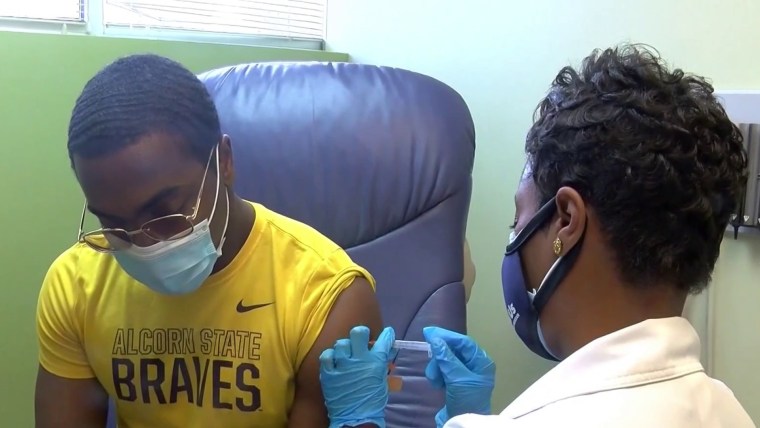How people can lower their risk of illness
As more and more Americans doff their masks, immunocompromised individuals may be concerned about their risk levels among largely unmasked crowds.
The latest change came Monday, when a federal judge struck down the Centers for Disease and Control Prevention’s rule that mandated that all travelers wear masks on public transportation, including planes and trains.
Full coverage of the Covid-19 pandemic
But experts say that while immunocompromised individuals do remain at a greater risk of Covid, the landscape looks much different than it did even a year ago, with a number of tools available to provide the extra protection they need.
Now, options including additional vaccine doses and boosters, preventative monoclonal antibodies injections and antiviral drugs may help some immunocompromised people take steps toward resuming a more normal life.
The tools immunocompromised patients now have at their disposal, while not as effective as when given to those with healthy immune systems, can still allow them to feel more comfortable, said Dr. Bob Wachter, chairman of the Department of Medicine at the University of California, San Francisco.
“For a patient who’s immunocompromised to say, ‘I still feel like I need to stay home’ and not go outside and live life is incredibly sad,” Wachter said. “I think at this point, it isn’t necessary.”
Dr. Alfred Kim, a rheumatologist at Washington University in St. Louis, acknowledged the progress that’s been made.
“Certainly, we’re in much better shape” than last year, Kim said. Still, “when you consider all the unmasking,” high quality masks like N95s remain an important tool for people with weakened immune systems.
An estimated 2.7 percent of adults in the U.S. are immunocompromised. This includes organ transplant recipients, certain cancer patients and people with HIV or other conditions that impair the immune system.
Additional vaccines
While the Covid vaccines have been available to immunocompromised patients for well over a year, scientists’ understanding of how to best use the vaccines in this group has evolved.
Last August, the Food and Drug Administration and the CDC signed off on an additional dose for immunocompromised individuals. This dose was not considered a booster — instead, it was part of the primary series.
“For those who are immunocompromised, that additional dose is kind of that primary series, where three doses is kind of the same as two” doses in people with healthy immune systems, said Dr. David Boulware, an infectious disease physician at the University of Minnesota Medical School.
Dr. Dorry Segev, a professor of surgery and population health at NYU Langone Health in New York City, agreed that vaccinations and booster shots are the mainstay.
“That is the fundamental thing that everybody who’s immunocompromised needs to do,” he said.
Data suggests that the additional dose of the vaccine has proven beneficial.
A study published in January in the CDC’s Morbidity and Mortality Report found that three doses of a vaccine raised protection to 88 percent amongst adults who were immunocompromised, an increase of nearly 20 percent in those who just received two doses. The study took place when the delta variant was dominant in the U.S.
Since then, two additional booster doses have been authorized, to combat waning immunity. That means a person with a weakened immune system can receive a total of five shots.
Antibodies
Kim, of Washington University, said the most essential tool to emerge is Evusheld, which was authorized by the FDA in December.
Evusheld, made by AstraZeneca, is a monoclonal antibody cocktail, given in two injections, to prevent Covid. For people who can’t mount an immune response even with vaccinations, the drug provides patients with a direct infusion of antibodies. Patients can receive an additional dose every six months.
“It provides them antibodies that can protect them from Covid that they should have generated by vaccination but can’t” because of their impaired immune systems, Kim said.
In clinical trials, Evusheld was found to be 83 percent effective against symptomatic illness over six months.
Antivirals
Antivirals such as Paxlovid — a pill made by Pfizer — may also be an option for immunocompromised individuals, should they get infected, Kim said.
However, the drug isn’t a sure fit for everyone, because it can react with a number of other medications, some of which are needed by the immunocompromised.
This is “a bit of a tricky point, because you’ll have to hold some of your medication for your autoimmune diseases so you can be on Paxlovid even for a brief period of time,” Kim said.
The FDA doesn’t recommend Paxlovid for people with severe kidney or liver disease.
At UCSF, Wachter said that doctors and staff have been making efforts to raise awareness of the resources that immunocompromised individuals have at their disposal to prevent both infection and severe disease.

